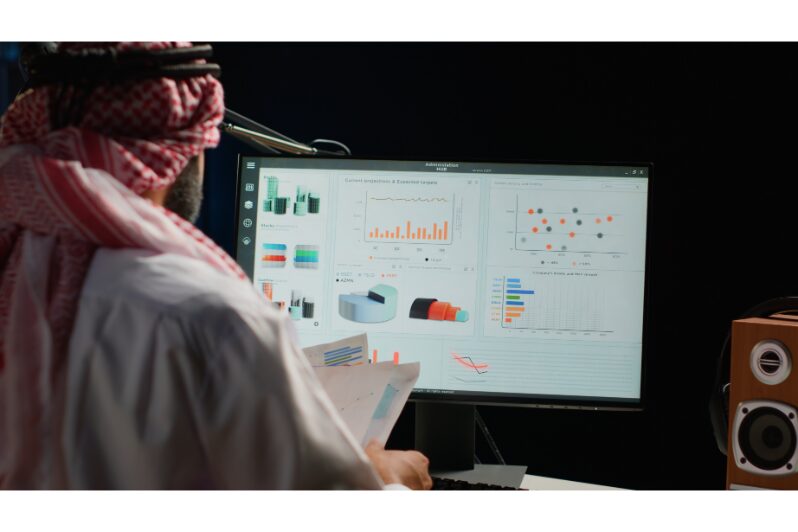The integrity of financial information is essential in finance spheres. For purposes of precise and consistent economic reporting, businesses must comply with IFRS (International Financial Reporting Standards) as a universal benchmark. This article explains the relationship between internal controls, IFRS (International Financial Reporting Standards) auditing, and the significance of internal controls. Thus, businesses are advised to seek the expert services of Audit Firms in Dubai to effectively ensure compliance with IFRS.
Understanding the Internal Controls and IFRS Auditing
Internal controls are an essential pillar of economic integrity. They cover the approaches, actions, and mechanisms that protect assets, and guarantee precise economic data. Audit firms in Dubai identify that these controls are indispensable not only for controlling compliance but also for boosting stakeholder sureness.
The IFRS auditing process inspects a company's devotion to these global standards. It comprises evaluating internal controls to regulate the reliability of financial declarations. Thus, it is essential for businesses to be knowledgeable about the processes to navigate the complexities of IFRS audits efficiently.
How Internal Controls and IFRS Auditing Ensure Accuracy and Reliability?
The incorporated association between internal controls and IFRS auditing is leading in assuring the accuracy and reliability of economic information in the complex globe of economic reporting. Below are essential factors to easily understand how Internal Controls and IFRS Auditing Ensure Accuracy and Reliability;
- A Support of Trust
The inclusive schemes of checks and balances are the support upon which financial precision rests. By applying internal controls, businesses in Dubai and elsewhere ensure that their financial data leftovers are protected. Also, errors are diminished, and the risk of deception is alleviated.
- Nexus of Auditing
Auditing depends on internal controls. Particularly, in an active business atmosphere like Dubai. Audit firms in Dubai inspect these controls to assess their competence in averting and noticing substantial mistakes. Auditors depend on internal controls to direct their audit processes. It ensures that economic declarations are free from extensive blunders.
- IFRS Compliance
IFRS systems are the base of international financial reporting standards. Compliance with IFRS ensures that economic data is steadily prepared, clear, and equivalent across boundaries. In Dubai's varied business sites, adhering to IFRS standards is dynamic for fascinating worldwide investments and keeping a regulatory position.
- Risk Mitigation
Internal controls help as a strong resistance mechanism against financial misconduct and mistakes. By classifying and addressing dangers early, businesses diminish the chances of economic imprecisions. It improves their ability to meet IFRS obedience requirements.
- Investor Confidence
The eventual goal of this interaction is to implant confidence in investors. Be it stakeholders, regulators, or creditors, the association between internal controls and IFRS auditing sends an influential message that economic information is correct, consistent, and in compliance with international standards.
What is the importance of Internal Controls in IFRS Auditing?
Audit firms in Dubai, as in many international financial pivots, are well conscious of the essential role IFRS plays in ensuring consistency and equivalence in financial reporting. Below are some points by which businesses can easily understand the importance of Internal Controls in IFRS Auditing;
- Ensure Accuracy
Internal controls ensure financial accuracy. They integrate a series of strategies and actions. Internal Controls such as shielding assets, noticing and preventing deception, and guaranteeing the reliability of monetary data are imperious for keeping the integrity of financial information.
- Enhancing Audit Reliability
For audit firms in Dubai directing IFRS audits, internal controls help as the base upon which their valuations are built. Through an orderly assessment of these controls, auditors gain sureness in the accuracy of financial declarations.
- Global Credibility
Companies fortified with robust internal controls not only meet regulatory necessities but also improve their credibility on the global stage. The matrimonial of internal controls and IFRS compliance ensures that financial declarations precisely reflect a company's financial position.
What are the Common Challenges in IFRS Auditing and Internal Controls?
There are notable challenges but the most common are;
- Intricate Business Transactions
Audit firms in Dubai often meet complicated business transactions that can carry challenges in IFRS auditing. These transactions may include composite financial instruments or difficult revenue recognition methods.
- Miscellaneous Regulatory Environments
This diversity can confound IFRS compliance and the execution of reliable internal controls.
- Technology and Data Safety Concerns
As businesses digitize their processes, the protection of economic data becomes progressively dangerous. Safeguarding that internal controls can familiarize the developing technology while keeping data safety in line with IFRS requirements is a challenge many face.
Conclusion
The interaction between internal controls and IFRS auditing is the key player of precision. Thus, businesses are advised to seek the expert services of Top Audit Firms in Dubai to effectively ensure compliance with IFRS. Therefore, contact us today and we shall be glad to assist you.
Read More: Dubai Audit Firms Guide To Accounting Customer Incentive In IFRS
Theshani is a Senior auditor and has experience of 4+ years in providing audit assurance and advisory services to a wide range of industry clients. She continues to stay on top of ever-changing industry dynamics by continuously learning and developing expertise.
